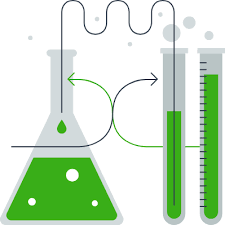Understanding Air Quality Standards in Egypt: A Complete Guide
Air quality standards in Egypt are an integral aspect of environmental regulation and public health. With increasing urbanization and industrialization, the importance of maintaining healthy air has never been more crucial. Understanding and complying with air quality standards in Egypt is essential for promoting a safe and sustainable environment. In this complete guide, we environmental consulting agencies will explore the key aspects of air quality standards in Egypt, providing a comprehensive overview of the regulations, monitoring methods, and health implications. Whether you are a policymaker, environmentalist, or concerned citizen, this guide aims to equip you with the knowledge to make informed decisions and contribute to improving air quality in Egypt.
Understanding Air Quality Standards in Egypt: A Complete Guide is a comprehensive resource that provides detailed information on the air quality standards set by the Egyptian government. The guide covers the various pollutants that are monitored, the permissible levels of these pollutants, and the regulatory framework for ensuring compliance with environmental consulting companies the standards. It also delves into the health and environmental impacts of poor air quality and provides insights into the measures being taken to improve air quality in Egypt. Whether you are a government official, environmental activist, researcher, or simply concerned citizen, this guide is a valuable tool for understanding and engaging with air quality issues in Egypt.
The Importance of Air Quality Standards in Egypt

The importance of air quality standards in Egypt cannot be overstated. With a rapidly growing population and industrialization, the country is facing significant challenges in managing air pollution. Poor air quality has serious implications for public health, the environment, and the economy. Ensuring adherence to air quality standards is crucial for protecting the health of the population. Exposure to air pollution can lead to various respiratory and cardiovascular diseases, particularly for vulnerable groups such as children and the elderly. By establishing and enforcing stringent air quality standards, the government can mitigate these health risks and improve overall public well-being. Furthermore, preserving clean air is essential for safeguarding the environment. Air pollution can contribute to climate change, damage ecosystems, and harm wildlife. Adhering to air quality standards is therefore vital for preserving Egypt's natural heritage and ensuring a sustainable future for generations to come. Economically, poor air quality can have significant repercussions. It can undermine tourism, as visitors may be deterred by pollution, and environmental consulting companies near me it can also impact agricultural productivity. By maintaining high air quality standards, Egypt can protect its vital tourism industry and support the agricultural sector. In conclusion, the importance of air quality standards in Egypt cannot be overstated. By prioritizing clean air, the country can protect public health, preserve the environment, and sustain economic growth. It is imperative for the government to proactively monitor and enforce air quality standards to ensure a healthy and prosperous future for all Egyptians.
Challenges in Implementing Air Quality Standards in Egypt

One challenge in implementing air quality standards in Egypt is the lack of comprehensive monitoring and reporting systems. This makes it difficult to accurately assess air quality and enforce regulations. Additionally, industries and vehicles often do not comply with emissions standards, leading to continued pollution. Another challenge is limited public awareness and political will to address air quality issues. Without strong support from the government and citizens, it is difficult to make significant improvements in air quality. Furthermore, the high population density and rapid urbanization in Egypt contribute to air pollution, making it a complex issue to address. Overall, addressing these challenges will require a coordinated effort from government, industry, and the public to improve air quality standards in Egypt.
Impact of Poor Air Quality on Health in Egypt

The impact of poor air quality on health in Egypt is substantial. Air pollution in cities like Cairo has been linked to various health problems, including respiratory diseases, cardiovascular issues, and cancer. Particulate matter, nitrogen dioxide, and sulfur dioxide are common pollutants in the air, and long-term exposure to these can have serious health consequences. Children, the elderly, and individuals with pre-existing health conditions are particularly vulnerable to the effects of poor air quality. It is crucial for the Egyptian government to take measures to improve air quality and reduce the health risks associated with pollution.
Current Air Quality Standards and Regulations in Egypt
environmental measurements laboratory

The air quality standards and regulations in Egypt are established and enforced by the Egyptian Environmental Affairs Agency (EEAA). The agency sets limits and guidelines for various pollutants, such as sulfur dioxide, nitrogen dioxide, and particulate matter, in order to protect public health and the environment. These standards are in line with international guidelines and are regularly reviewed and updated as needed to ensure that air quality in Egypt meets acceptable levels. The EEAA also monitors and enforces compliance with these standards through various regulatory mechanisms. Additionally, Egypt is a signatory to several international agreements and protocols related to air quality and is committed to reducing air pollution and its impact on public health and the environment.
Efforts to Improve Air Quality in Egypt
Efforts to improve air quality in Egypt have included the implementation of stricter regulations on industrial emissions, the introduction of cleaner vehicle technologies, and the expansion of green spaces in urban areas. The government has also invested in public transportation infrastructure to reduce reliance on private vehicles. Additionally, there have been initiatives to promote renewable energy sources and reduce reliance on fossil fuels for electricity generation. Despite these efforts, air pollution remains a significant concern in Egypt, particularly in major cities like Cairo. Ongoing efforts are needed to further reduce emissions and improve air quality for the population.
Comparing Egypt's Air Quality Standards to Global Standards
Egypt's air quality standards are generally aligned with global standards, which aim to protect public health and the environment from harmful air pollutants. The country has set specific regulations and guidelines for different pollutants, such as particulate matter, sulfur dioxide, nitrogen dioxide, carbon monoxide, and ozone, to ensure that air quality levels are within acceptable limits. These standards are comparable to those set by international organizations such as the World Health Organization and the European Union. However, challenges remain in effectively enforcing and monitoring these standards, particularly in densely populated urban areas with high levels of industrial and vehicular emissions. Efforts to improve air quality in Egypt include the implementation of cleaner fuel standards, investment in public transportation, and the promotion of renewable energy sources.
The Future of Air Quality Standards in Egypt
The future of air quality standards in Egypt will depend on the government's ability to implement and enforce stricter regulations. Currently, air pollution in major cities like Cairo and Alexandria is a significant problem, with high levels of particulate matter and nitrogen dioxide posing health risks to residents. In recent years, the government has taken steps to address this issue, such as investing in public transportation and promoting renewable energy sources. However, more comprehensive efforts are needed to improve air quality, including stricter emissions standards for vehicles and industrial facilities, as well as increased monitoring and data collection. It will also be important for the government to work with stakeholders and the public to raise awareness about the importance of clean air and garner support for measures to combat air pollution. Overall, the future of air quality standards in Egypt will require a multi-pronged approach to reduce pollution and protect public health.










